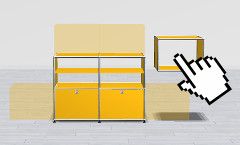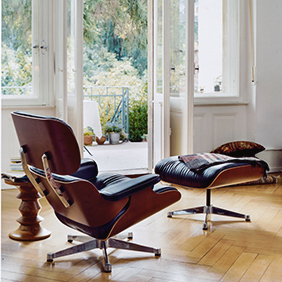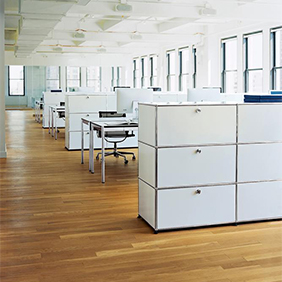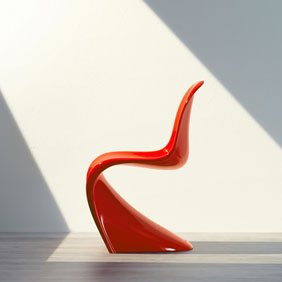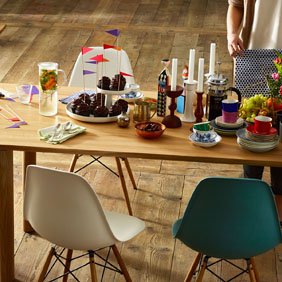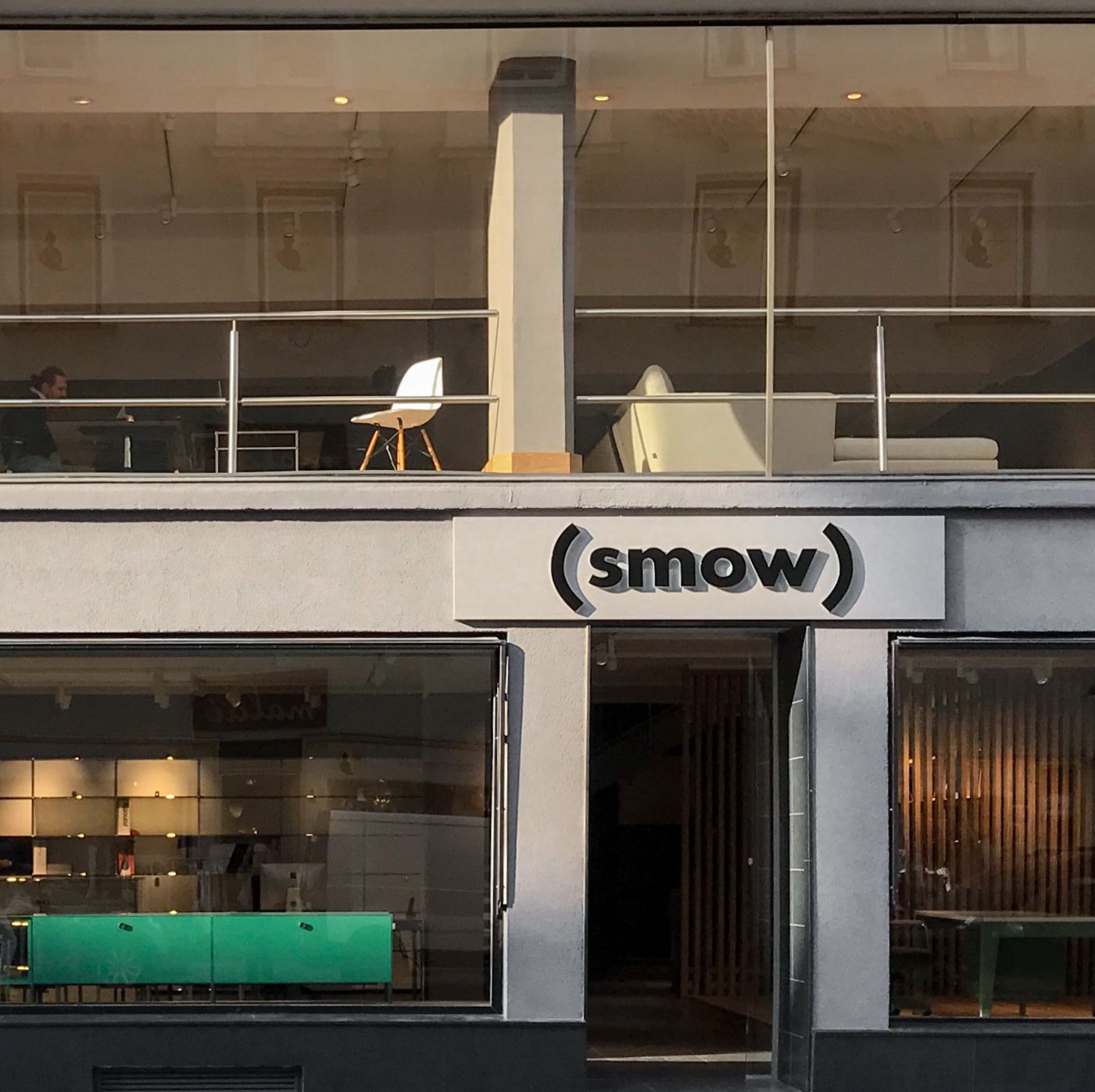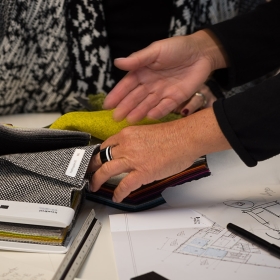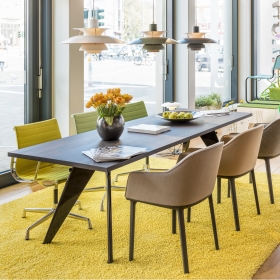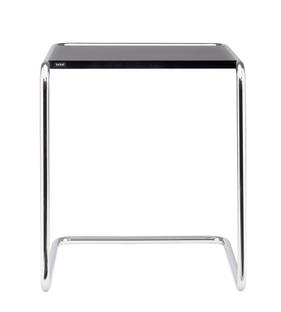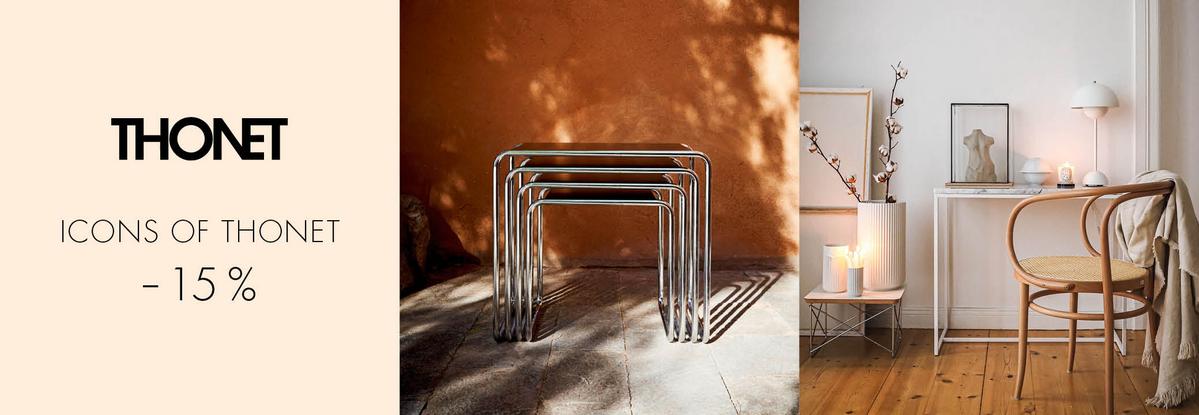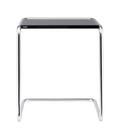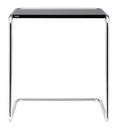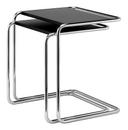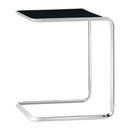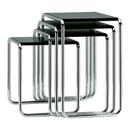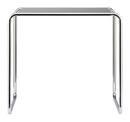Details
| Product type | Side table |
| Dimensions | 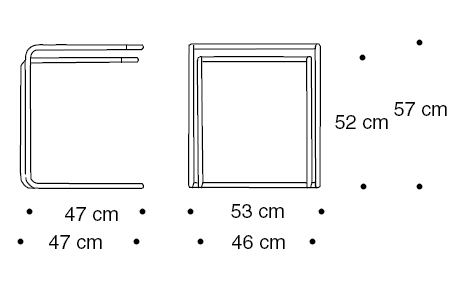 |
| Material | Frame: tubular steel, chromed plated Table top: beech, stained or lacquered |
| Colours | Beech stained       Lacquer    |
| Delivery includes | 1 table B 97a orB 97b (Both tables available as a Set with a price advantage) |
| Care | The wood and metal surfaces should be wiped with a soft, damp cloth and a mild, neutral detergent. Please click on picture for detailed information (ca. 0,7 MB). 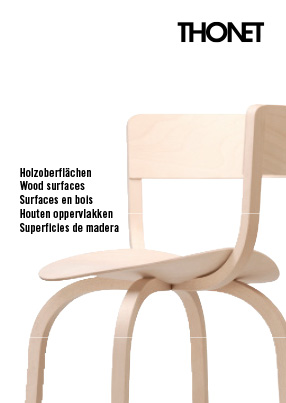 |
| Certificates & Sustainability | Thonet has declared sustainability to be a corporate principle. The manufacturer continuously optimizes all processes from production/technology, materials management and recyclability to transport routes and constantly pays attention to resource-saving energy and material consumption. Last but not least, social and ethical principles are among the top priorities. Thonet has been awarded the "Green Globe Certificate" for its measures of sustainable and environmentally friendly management - further information can be found here. |
| Warranty | 24 months |
| Product family | Side tables B 97 |
| Product presentation |
The Design
Instantly reminiscent of Marcel Breuer's B 9 nesting tables, the B 97 coffee table originates from 1933 and the pens of the Thonet in-house design team. And while visually its combination of steel tube frame and wooden table top is very reminiscent of the Bauhaus classics, the Thonet B 97 has a practical advantage over its close relative: thanks to the side opening one can pull the B 97 directly to a sofa or bed, a functionality which causes the B 97 to stand out from other side, sofa or coffee tables. In doing so the B 97 ably demonstrates that tubular steel is not only an elegant material, but also a versatile and variable one applicable for practical everyday companions. The Thonet side table is available in two different sizes - with a height of 52 or 57 cm - or, and at a discount the two tables can be purchased a set set.
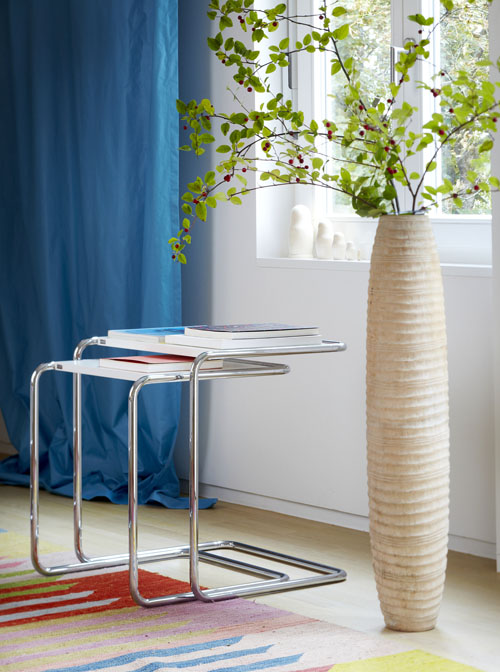
The Thonet B 97 nesting tables
Historical Context
In the first third of the 20th century the Bauhaus, and related contemporary institutions, developed new ideas about housing, building and living which were fundamental to the development of the classical modern. Man sought new forms and corresponding to the modern production process. Marcel Breuer responded to such challenges through the use of thin-walled steel pipe, and the subsequent development of bent steel tube furniture - furniture whose form was determined by the production process. In addition to this fusion of art and crafts, major themes of the period were functionality and the egalitarian desire to produce good design via industrial production at low cost and thus suitable for mass production. Particularly suitable in this respect was the modular or constructivist approach, and furniture, accessories and also buildings composed of similar, easily reproducible forms.
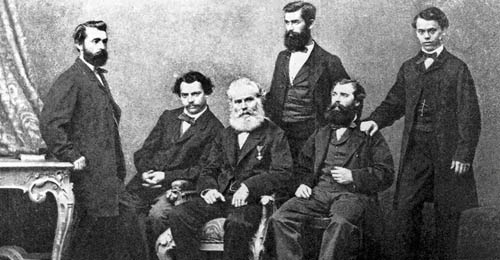
A photo of the Thonet family, taken around the turn of the century
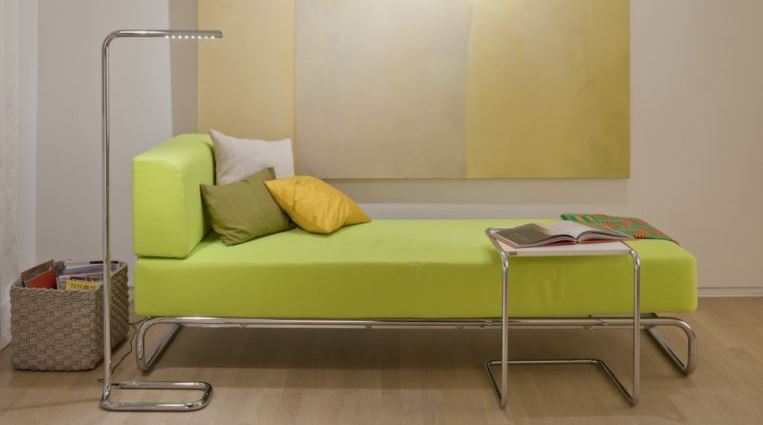
The B 97 nesting tables is particularly useful as a side table.
Production
The German furniture manufacturer Thonet produces the coffee table B 97 in chrome plated steel tube with a wooden table, which is optionally available in a stained beech or lacquered version and in a range of colours. As with all Thonet furniture the manufacturing process of the Thonet B 97 is certified with the Green Globe certificate - a guarantee that the production respects not only ecological but also economic and social sustainability - all essential underlying aspects of the Thonet corporate philosophy. The Thonet B 97 coffee table beautifully demonstrates the longevity that such a philosophy produces: excellent, timeless design and the use of high quality of materials create a product that once bough need never be replaced. All materials used in the construction are environmentally friendly, recyclable and are processed by means of electricity that comes from 100% environmentally sustainable sources.
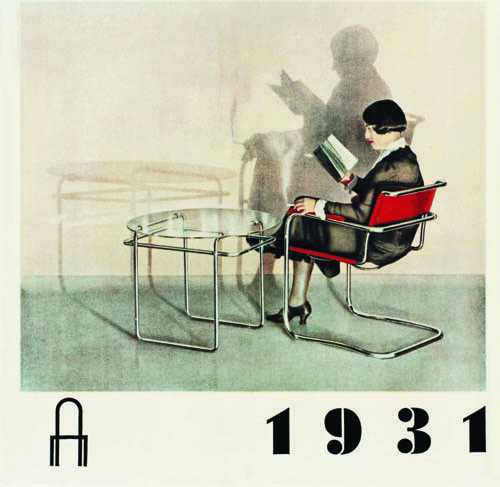
In the 1920s and '30s Thonet were the producer of Bauhaus designs par excellence.
Designer and Manufacturer
In the case of the Thonet B 97 tables manufacturer and designer are the same: the B 97 originates from the Thonet design teams. The designs of the Thonet design team build in terms of aesthetics, innovation and functionality on those of the company founder Michael Thonet, who in the 19th century with the bentwood chair 214, universally known as the self-build coffee houses chair, revolutionised furniture design. In the 1920s and -30s Thonet cooperated with protagonists of the new ideas of the age, such as the architect and designer Marcel Breuer cooperated - thus it's no coincidence that the coffee table B 97 from references Breuer's B9 nesting tables, the influence of Bauhaus was all prevalent at that time. It was exactly this mix of the realization of internal, in-house, designs with those of cooperating external designers, including works such as S 43 by Mart Stam, which raised Thonet to the position as one of the world's leading furniture producers. Today from its base in Frankenberg, Hessen, the Thonet team of designers, engineers and craftsmen continue to develop contemporary, timeless products and for all distinguishes itself through a portfolio of aesthetic and functional furniture created by a combination of excellent craftsmanship and resource-saving technologies.

